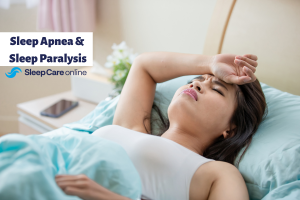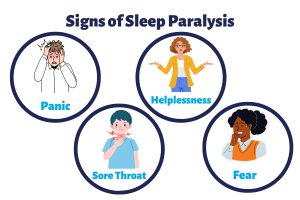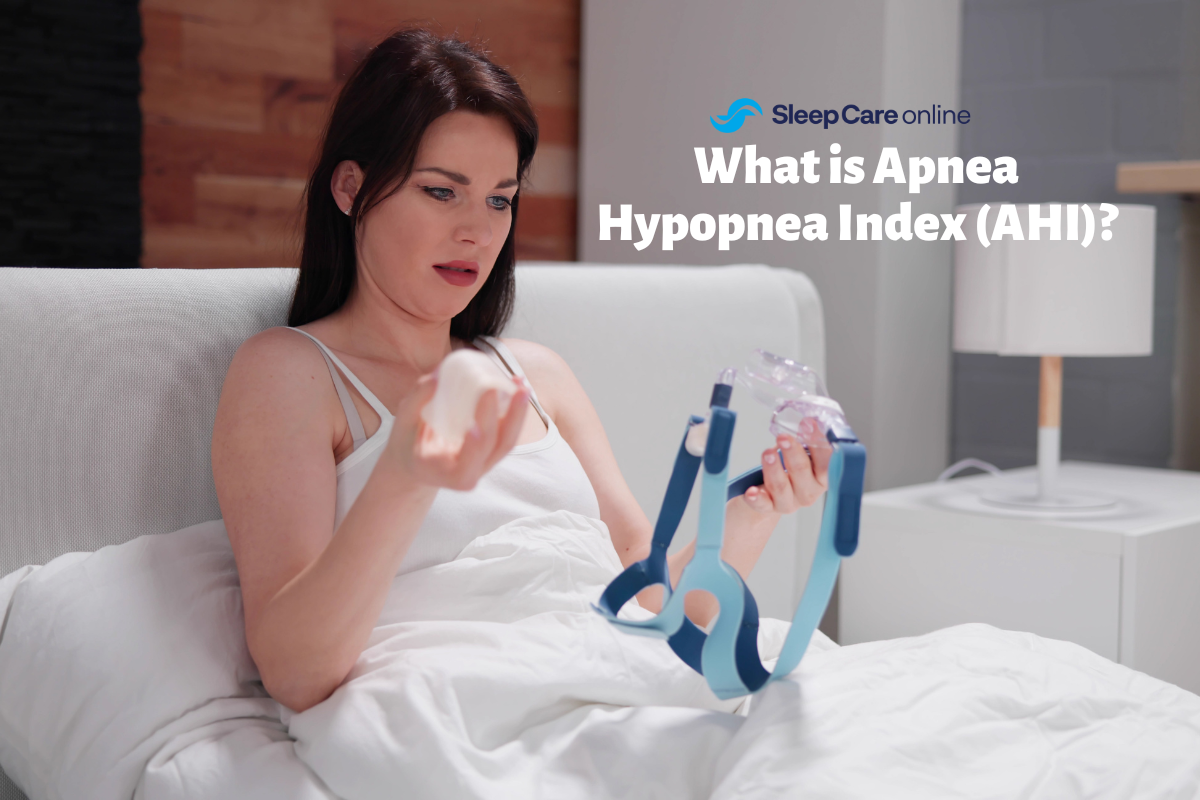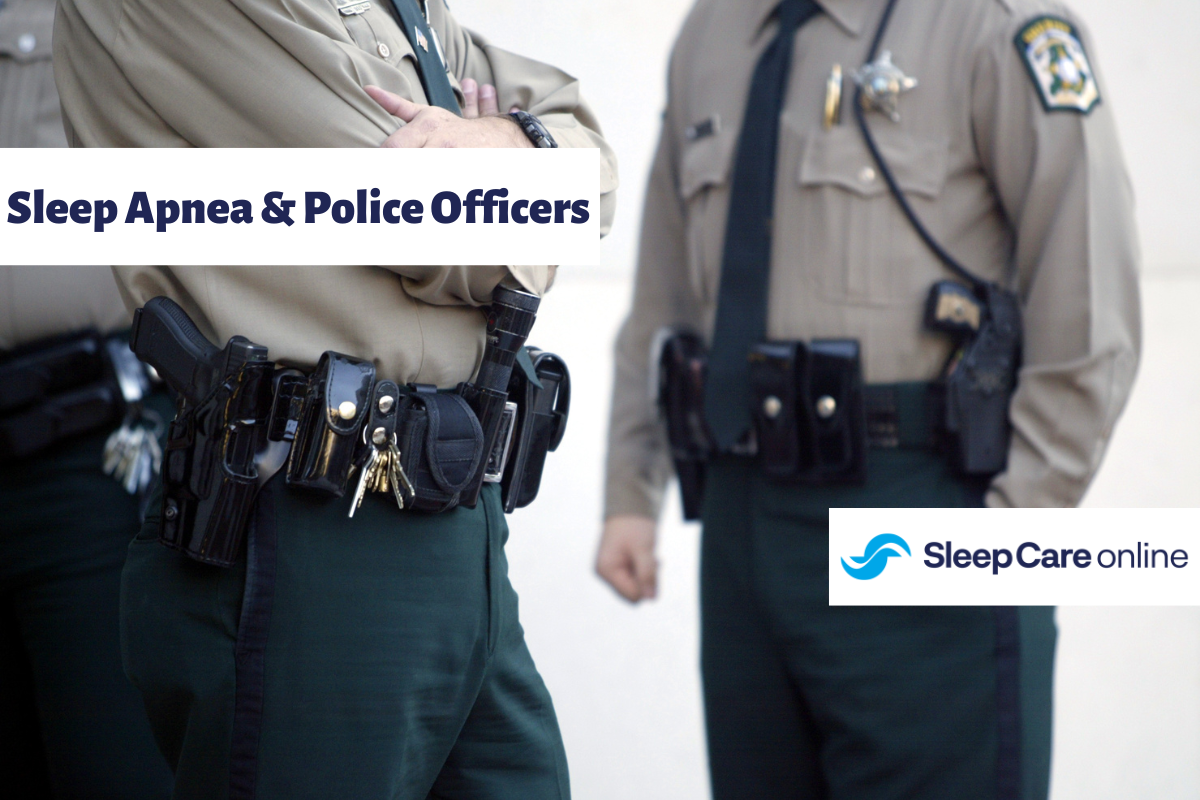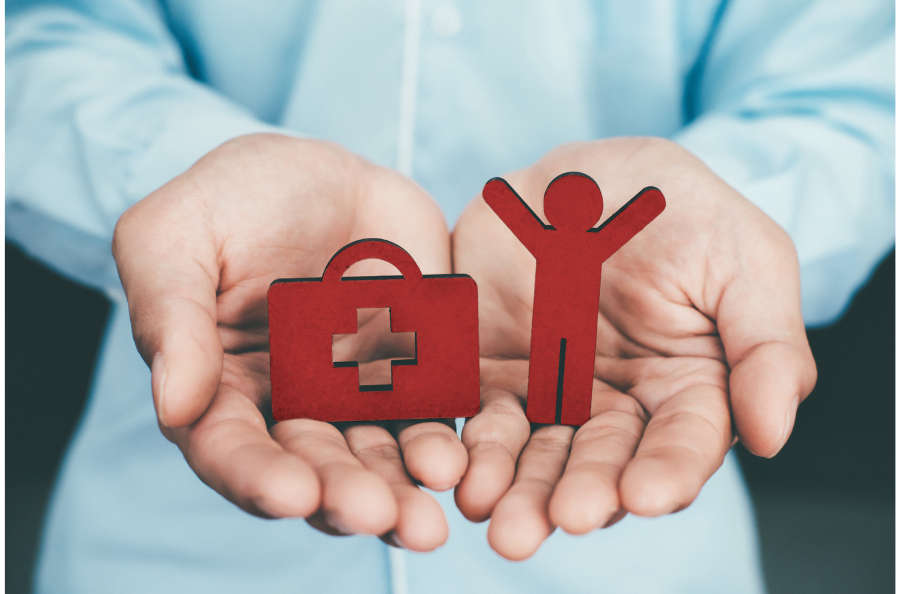Is there a link between sleep apnea and sleep paralysis? Some researchers think so. Both sleep conditions may be affected by poor sleep hygiene.
How Are Sleep Apnea and Sleep Paralysis Related?
Although sleep apnea and sleep paralysis are common sleep disorders, having one does not mean you have both. However, it’s also not uncommon to have both conditions at the same time either. These conditions can be connected due to sleep deprivation and other factors as well.
Sleep Apnea
Sleep apnea is a common sleep disorder in which your breathing stops and restarts many times while you sleep. This can prevent your body from getting enough oxygen. The most common type of sleep apnea, obstructive sleep apnea, is caused by the airway periodically closing during the night, which causes gasping for breath. Frequent episodes or “apneas” eventually lead to chronic sleep deprivation. Along with sleep loss, the condition, if left untreated, can lead to other mental and physical health issues.
Symptoms of Sleep Apnea
Some of the most common signs that you may have sleep apnea include:
- Loud snoring-reported by your bed partner
- Episodes in which you stop breathing during sleep — which would be reported by another person
- Gasping for air during sleep
- Awakening with a dry mouth regularly
- Morning headaches
- Difficulty staying asleep (insomnia)
- Excessive daytime sleepiness (hypersomnia)
- Difficulty paying attention while awake
- Irritability
- Depression and anxiety
- Poor memory
- Increased likelihood of accidents due to compromised cognitive ability
Sleep Paralysis
Sleep paralysis is a condition identified by a brief loss of muscle control, known as atonia, that happens just after falling asleep or waking up. In addition to atonia, people often have hallucinations during episodes of sleep paralysis.
Sleep paralysis is categorized as a type of parasomnia. Parasomnias are abnormal behaviors during sleep. Because it is connected to the rapid eye movement (REM) stage of the sleep cycle, sleep paralysis is considered to be REM parasomnia.
Symptoms of Sleep Paralysis
During sleep paralysis, you may experience:
- A feeling of being awake but not being able to move, speak or open your eyes
- A sense that there is someone is in your room
- A sensation like something is pushing you down
- An inexplicable sense of fear
These feelings can last up to several minutes. In general, sleep paralysis gives you the impression that you incapable of movement or that events are occurring that are not. In essence, it is a bad dream that is so vivid is appears as real and physically immobilizes you.
Can Sleep Apnea Cause Sleep Paralysis?
Many of the issues that influence sleep apnea such as alcohol, caffeine, and smoking—also affect sleep paralysis. Poor sleep hygiene informs sleep disturbances, which causes sleep deprivation. Sleep deprivation feeds sleep apnea, which can feed sleep paralysis. Sleep deprivation manifests as disorders, and the disorders perpetuate stress. The good news is that knowing that sleep deprivation is the root means you can change it. Here’s how to break through the cycle of sleep disturbances.
What are the Remedies for Sleep Apnea and Sleep Paralysis?
Exercise
Regular exercise helps to wear out excess energy that can keep you awake at night. Try to perform rigorous exercise during the day, not close to bedtime. Exercise near bedtime can energize the body and may contribute to staying awake. Try to be consistent in your exercise routine so that your body gets used to reducing energy levels as bedtime nears. Exercise does not have to be excessive. A brisk walk for about 15 minutes a day that gets the heart pumping is enough to help you get the exercise you need.
Practicing Good Sleep Hygiene
Good sleep hygiene essentially means that you follow the same bedtime routine every night. Erratic sleep schedules can leave your body confused and tired at the wrong time. Eating heavy meals before bed can be disruptive to good sleep and may contribute to both sleep apnea and sleep paralysis episodes. Avoid blue light devices near bedtime like TVs, cell phones, tablets, and computers, which can make your body feel like it is daytime instead of night.
Set A Particular Bedtime
A regular bedtime means that your body can adapt to a consistent schedule. Napping during the day can leave you awake at night and restless. And late nights can rob your body of precious sleep time if you have to get up early in the morning, which can leave you drowsy. Instead, stay focused on a bedtime that is roughly the same every night to ensure that your body prepares for sleep, which can help both sleep apnea and sleep paralysis.
Reduce Alcohol, Caffeine, And Smoking Consumption
While it may be difficult, many bad habits can leave you sleep deprived. Alcohol may seem like a good nightcap but actually disrupts healthy sleep. Caffeine over-stimulates your body and can keep you awake, whether the source is coffee, tea, or soft drinks. Smoking can irritate the airway and increase symptoms of sleep apnea and sleep paralysis.
Avoiding alcoholic beverages, caffeinated beverages, and smoking a few hours before bedtime can help reduce the likelihood of sleep apnea and sleep paralysis symptoms.
Key Takeaways
Because sleep apnea and sleep paralysis are linked, it is important to focus on maintaining quality sleep to prevent these disorders. Taking charge of your sleep schedule and enforcing personal discipline on lifestyle can all help to reduce the unpleasant events of sleep paralysis and the sleep-depriving experience of sleep apnea. Take sleep disorders seriously and look to receiving a diagnosis and possible treatment for sleep apnea and sleep paralysis.

